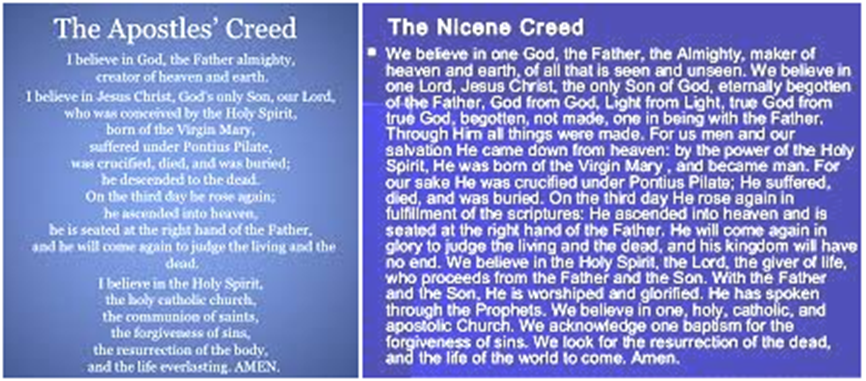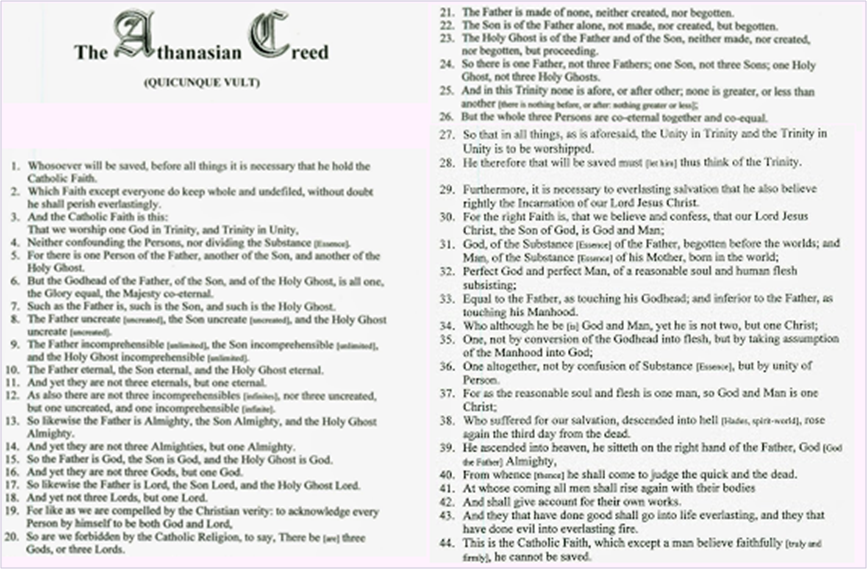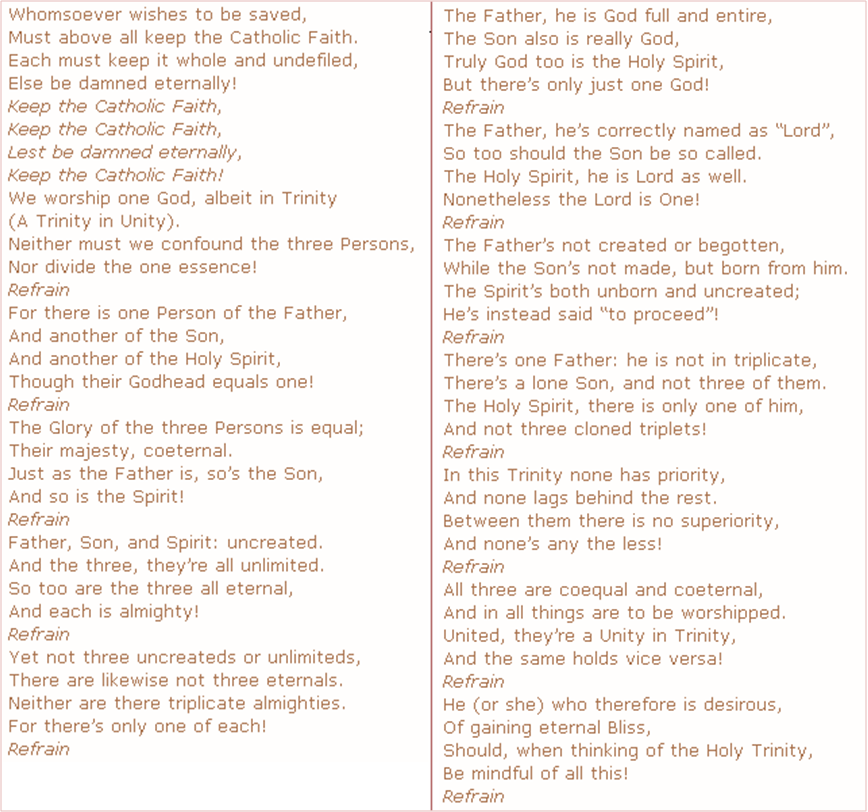 Benjamin Disraeli, who was born a Jew but became an Anglican at age 12, famously said: "The Athanasian Creed is the most splendid ecclesiastical
Benjamin Disraeli, who was born a Jew but became an Anglican at age 12, famously said: "The Athanasian Creed is the most splendid ecclesiastical
lyric ever poured forth by the genius of man". Stephen Bullivant, who is the Director of the Benedict XVI Centre for Religion and Society of St. Mary's
University in England, wrote this article recently to call attention to this least familiar of the three Creeds professed by Christendom.
How can we teach
the sadly neglected Athanasian Creed?
by Stephen Bullivant
CATHOLIC HERALD
July 25, 2017
As the half-dozen or so readers of my little Trinity book will know already, I’m convinced that the doctrine’s essentials can be stated (and understood!) in very clear and simple terms. They will also know that the writer of the Athanasian Creed was in full agreement.
The Athanasian Creed, originating perhaps in the 6th Century (and thus not by Athanasius), is one of western Christianity’s creedal Greatest Hits. Sadly, unlike its only peers the Nicene and Apostles’ Creeds, the (admittedly rather long) Athanasian Creed is no longer widely known. This is a shame for many reasons, not least the fact that it includes the most useful statement of the orthodox understanding of the Trinity we have.


Ever eager to render service unto the People of God, and mindful of the catchiness of those modern hymns all the young folks are
raving about, I therefore give you… a (dynamically equivalent) rendering of the first section of the Athanasian Creed, to the tune
of that perennial liturgical favourite 'Autumn Days' – preserving, I think, the spirit of each.

[Modificato da TERESA BENEDETTA 30/07/2017 17:20]